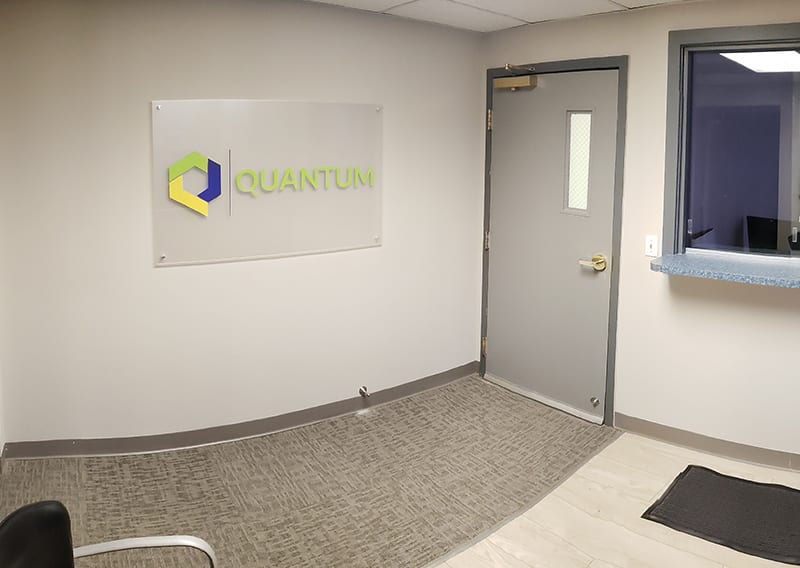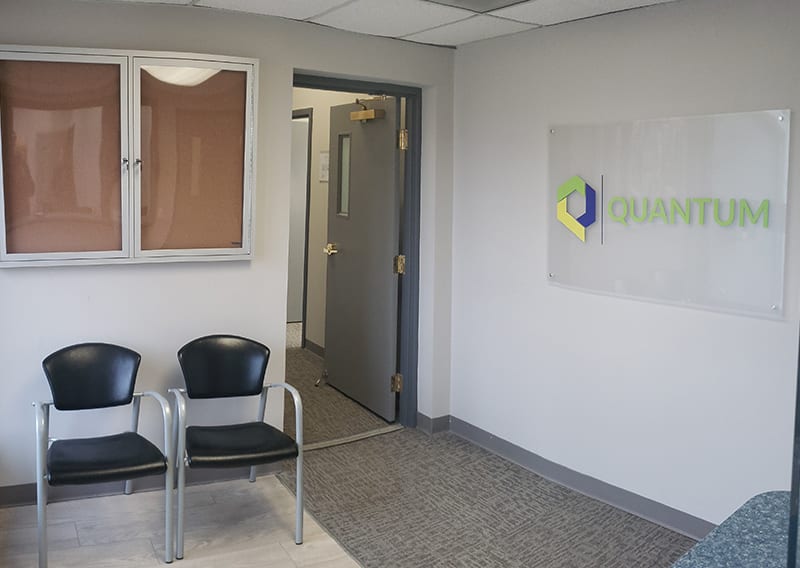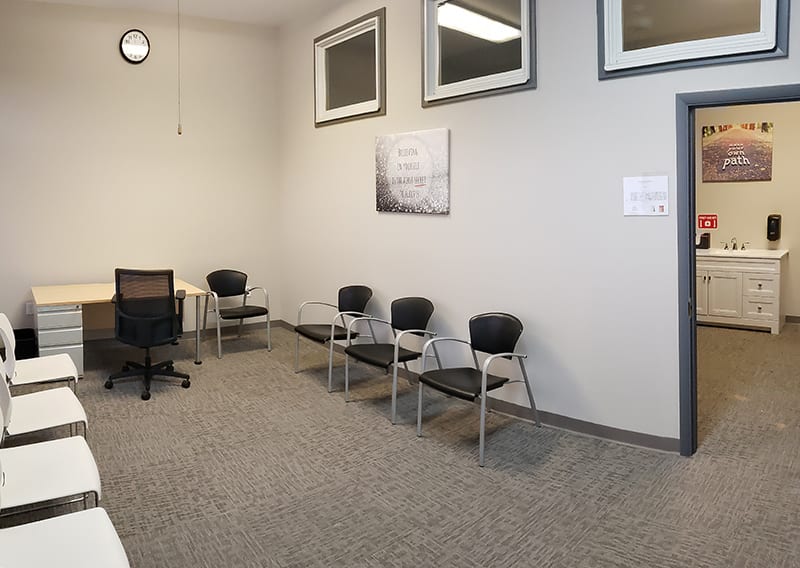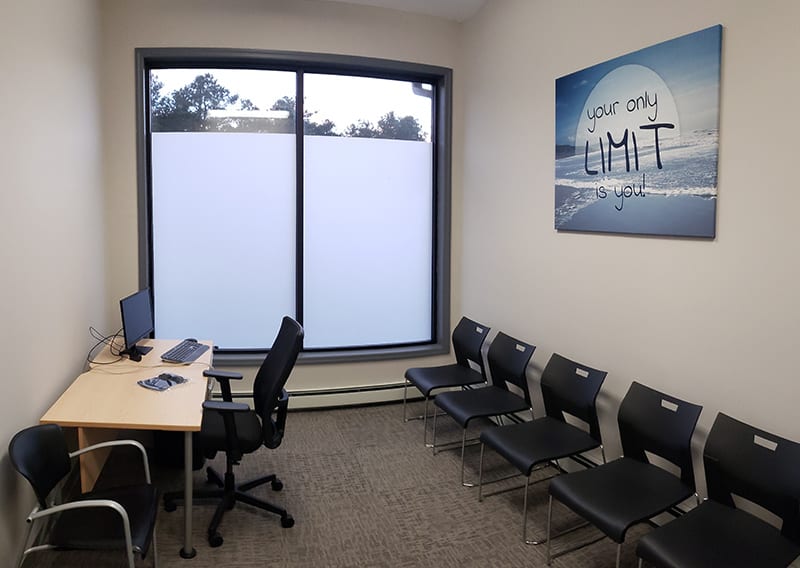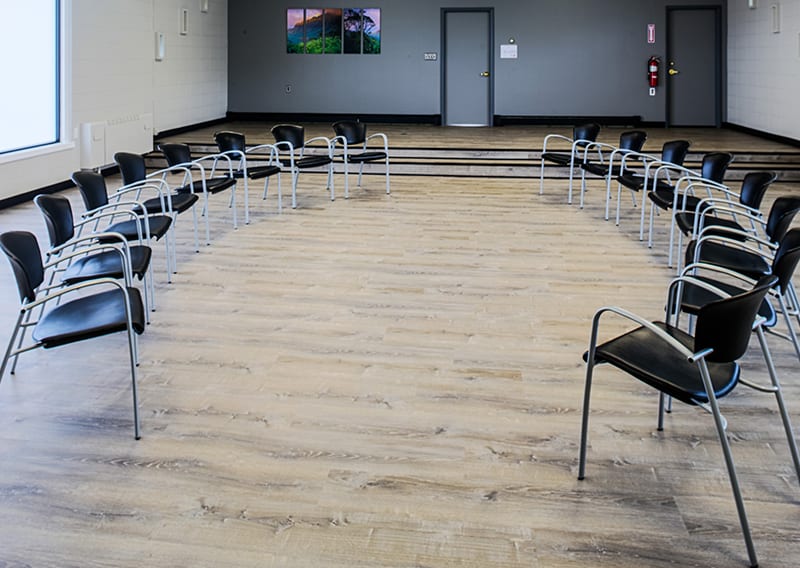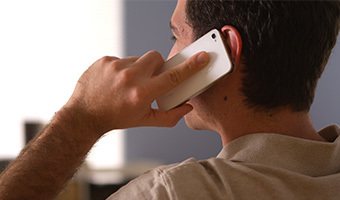Our facility is a warm, inviting, cozy, and secure environment that provides the perfect level of safety, comfort, and privacy as you receive treatment and get on your path to wellness. We’ve designed our space to allow for a low-stress environment where you can focus on your well-being.
Given the concerns of the COVID pandemic, we’re ensuring procedures are followed to create a clean environment for our patients, staff, and visitors. We’ve gone above and beyond CDC and New Jersey State guidance to design our cleaning and disinfecting protocol so that there is no question of the cleanliness and safety of our facility.
You’re here to get well and our priority is maintaining a safe, clean, peaceful, and welcoming environment for you to do just that.
To see our response to Covid-19, click here.
Photo Gallery
Click photos to enlarge
Are You Ready to Begin Your Journey to Recovery?
You could be completely covered. Verify Your Insurance Today.
The Quantum
Process Outpatient Rehab NJ
1. Make the Call
Contact our Quantum Team at
(609) 993 – 0733 to get started.
2. Complete
Your Intake
This streamlined process includes a series of questions and discussion of your unique needs and goals.
3. Get the Best Care Team Possible
After your intake, you’ll meet your Care Team, a group of amazing professionals dedicated to helping you make recovery reality.
4. On-Going Support
After you meet your Care Team, you’ll start to receive treatment based on a Care Plan that’s designed to help you achieve and sustain your recovery.
What Is Suboxone?
Suboxone is a medication to support someone living with an opioid use disorder to quit their opioid addiction safely. Suboxone aids individuals in opioid withdrawals and reduces opioid cravings. Taking suboxone is also a maintenance tool for individuals abstaining from opioid addiction and aids in long-term recovery. Suboxone is a combination of the Buprenorphine treatment and naloxone. Suboxone comes in pill format and is a dissolvable film placed underneath the tongue or cheek.
Suboxone Effects
Suboxone is an opioid antagonist meaning it is an opioid medication that produces mild or weak opioid effects. Creating similar effects of opioids supports your body in reducing the severity of opioid withdrawals and opioid cravings without making the strong, serious effects of opioids such as heroin or fentanyl.
Taking suboxone has binding affinities that block the effects of opioids if you attempt to return to your opioid addiction. This process often serves as a method of relapse prevention for those living with an opioid use disorder.
Signs of Suboxone Abuse and Addiction
Common signs of suboxone abuse and suboxone addiction are:
- Poor physical or motor coordination
- Weakness
- Slurred speech
- Inability to concentrate or focus
- Blurred vision
- Shallow breathing
- Drowsiness or sleeping excessively
- Nausea
- Stomach pains
- Increased heart rate
- Itchy sensations
- Loss of appetite or changes in appetite
- Loss of interest in activities and hobbies s that you once enjoyed
- Isolating oneself from loved ones to taking suboxone
- Showing difficulty maintaining work or school commitments due to your Suboxone abuse
- Experiencing financial problems due to funding your suboxone to fund Suboxone abuse
- Lying and hiding your substance abuse from loved ones to continue your Suboxone abuse
- Stealing money or suboxone from others to fuel your substance use disorders
- Excessive thoughts and planning for taking suboxone or obtaining more suboxone buprenorphine
Suboxone Withdrawal Symptoms
When you stop taking suboxone, individuals may experience the following withdrawal symptoms, often lasting for up to a month, depending on the severity of your opioid use disorder:
- Nausea
- Vomiting
- Headaches
- Muscle aches/Body Aches
- Insomnia
- Digestive system problems
- Indigestion
- Anxiety
- Depression
- Fever
- Chills
- Opioid cravings
- Excessive sweating
Long-Term Side Effects of Suboxone Abuse
Chronic suboxone abuse can increase the risk of suboxone overdose. The growing number of Americans experiencing opioid overdose has become a widespread epidemic for those living with active drug addiction. Many want to stop taking opioids, including suboxone buprenorphine but find that stopping taking suboxone can be challenging without the support of medical professionals. Misusing suboxone can lead to suboxone overdose, which can have the following long-term side effects:
- Confusion
- Dizziness
- Pupil constriction
- Hallucinations
- Low blood pressure
- Respiratory depression
- Seizure
- Coma
Long-term suboxone use can also create psychological impacts, including chronic anxiety disorder, depression, insomnia, social isolation, and other mental health disorders. Individuals may also experience long-term physiological effects, including constipation, confusion, disorientation, and decreased tolerance for pain.
Suboxone Addiction Treatment
If you are concerned about your suboxone abuse or a loved one misusing suboxone, there is support within drug rehab treatment programs. With the help of medical professionals and addiction counselors, you can safely stop taking suboxone with the supervision and monitoring of the licensed addiction treatment staff within the recovery center.
Suboxone treatment can be provided within an inpatient or outpatient treatment program, depending on your needed level of care. You will be provided with the support of medical detox and evidence-based therapy methods, including behavioral therapy, dual diagnosis, medication-assisted treatment, family therapy, and holistic treatment. These programs will support you in healing from suboxone addiction within your body, mind, and spirit. Your treatment programs will incorporate tools for relapse prevention and life skills development that will ensure you remain clean and sober while avoiding any triggers to return to your opioid use disorder. Your safety is of the highest importance in drug rehab, and you will be able to comfortably and safely remove suboxone buprenorphine dependence from your physical and mental health.

